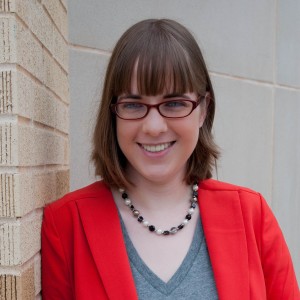When I graduated from college, countless classmates were headed to grad school — M.Eds, MDs, MBAs, MAs, MDivs, you name it. Well-intentioned professors urged me to do the same. I wanted to be a people-pleaser (and certainly a professor-pleaser!) as always…but just couldn’t shake the feeling that for some reason I wasn’t ready yet.
 Embarrassed, I moved home to my parents’ house (and later to a house with a few friends my age), got a job, and settled in.
Embarrassed, I moved home to my parents’ house (and later to a house with a few friends my age), got a job, and settled in.
It’s been 2 years since I wore a cap and gown. And each year, especially in the springtime, Facebook fills up with giddy grad school acceptance posts. There’s pictures of college hoodies and white coat ceremonies, comments of new seasons and new opportunities.
First, I feel happy for them; I really do. Then, the social comparison sets in, and I feel jealous, less-accomplished, one-step-behind. And, finally, when I think about it? Grateful. Grateful for the time I’ve had to live and work and learn some things like this:
- Being comfortable working with people significantly older than myself. In college, I worked, lived, and ate almost entirely with people approximately my age. But that’s not how most of the world operates. Now, I love sharing ideas and projects and meals with people in their 30s, 40s, 50s, 60s, 70s, and on upwards.
- Keeping up with cooking, cleaning, and grocery shopping. In college, I had just half a dorm room to take care of and a meal plan to nourish me. Again, that’s not how most of the world operates. But now that I’ve taken the time to practice, I’m grateful to be able to do these “adult” things at least semi-decently.
- Writing not only essays but cover letters, resumes, professional emails, newsletters, thank you letters, grants, and the list goes on. I know some of these things were taught at my university’s Career Center. And probably in the Business school. But nothing beats experience (especially since, as an English major, most of my prior experience was with William Wordsworth and T.S. Eliot). Now, I love being able to confidently tell potential employers that, whatever type of writing they need done, I can probably figure it out.
- Having fun. Yes, it may be backwards, but I’m a nerd and have learned how to have fun more after college than during it. In college, if a friend asked me to go on a walk just for fun, I’d nervously eye my to-do list and likely say no. Now, when a housemate asks me to sit on the porch and do nothing with her — nothing but sip our tea and talk and watch the sunset — I still have the to-do list but more likely say, “sure.” I love that doing nothing, which used to elicit a resounding “why would I do that?!” now elicits a resounding “sure, why not?!” This strikes me now as socially, spiritually, mentally, and physically healthy.
- Reading and writing for fun. By the end of college, poetry had lost its pizzazz and novels no longer seemed like a novel idea. They were assigned, analyzed, and amounted to a lot of work. Had I started grad school immediately, my reading and writing would have been burdensome from the get-go, which could easily have taken a toll on both my schoolwork and my mental health. Now, I love reading and writing more than ever.
- Focusing on what I should do and not being as distracted by what I could do. In college, I was a young arts & humanities major interested in lots of things. Ask me what I wanted to do professionally, and the answer got more and more muddled by the month. But, give me a job to do for a while, and the answers begin to settle. I’ve asked myself questions like “What is it that you can’t help but do? What is it you daydream about doing? What exactly could you see working on in-depth for a long while?” And I love that the answers have gotten clearer.
I’m sure this isn’t everyone’s experience of college and life-after-college. Plenty of people have practical experiences, fun, focus, and their own cooking and cleaning during college. And plenty of people struggle after college. But this has been my experience.
If you’re thinking about taking time off from higher education, I’d so strongly encourage you to do it. I never thought I’d say this but: I’m grateful I’ve done it.
This post originally appeared on juliapowersblog.com.
 Julia Powers is Blog Developer at EA Resources. A writer and seminary student at Duke Divinity School, Julia enjoys contributing an emerging adult voice to EA Resources and blogging at her own site www.juliapowersblog.com.
Julia Powers is Blog Developer at EA Resources. A writer and seminary student at Duke Divinity School, Julia enjoys contributing an emerging adult voice to EA Resources and blogging at her own site www.juliapowersblog.com.






 “Like many teenagers, Daniel Herron, 16, of Tacoma, Washington, has a busy life. He’s a member of the Sea Scouts, the nautical branch of the Boy Scouts of America. He serves on the Greater Tacoma Community Foundation’s Youth Philanthropy Board, helping to award thousands of dollars to local organizations. He’s active in his high school’s Bible study group.
“Like many teenagers, Daniel Herron, 16, of Tacoma, Washington, has a busy life. He’s a member of the Sea Scouts, the nautical branch of the Boy Scouts of America. He serves on the Greater Tacoma Community Foundation’s Youth Philanthropy Board, helping to award thousands of dollars to local organizations. He’s active in his high school’s Bible study group.

